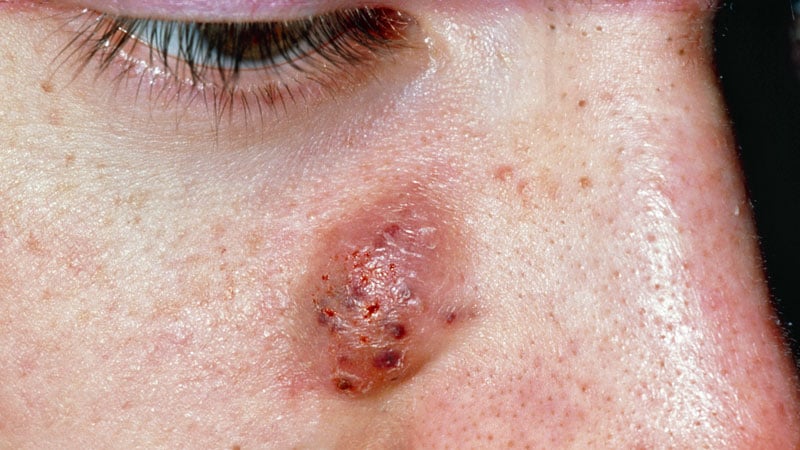The study covered in this summary was published on researchsquare.com as a preprint and has not yet been peer reviewed.
Key Takeaway
-
Acneiform eruptions in patients with colorectal cancer are more extensive and severe when targeted cancer therapies are used in combination instead of alone.
-
Eruptions are particularly bad when combining EGFR and MEK inhibitors.
-
Prophylactic tetracycline does not prevent or decrease the severity of eruptions.
Why This Matters
-
Acneiform eruptions are a common side effect of single-agent targeted therapy.
-
The impact of combination therapy on cutaneous toxicity in colorectal cancer has not been previously described.
-
The findings make the case for increased vigilance and early aggressive treatment when patients receive targeted therapy combinations as well as a need for new prophylactic strategies.
Study Design
-
Investigators reviewed 122 patients taking combination targeted therapies for colorectal cancer.
-
Most patients had stage IV colon cancer and had failed multiple lines of treatment.
-
The most common combinations were MEK plus PD-L1 inhibitors (30% of patients), EGFR plus MEK inhibitors (18%), and MEK plus PD-1 inhibitors (10%).
Key Results
-
Overall, 105 patients (86%) developed a rash and 87 (71%) developed an acneiform eruption.
-
Seventy-five patients (61%) underwent subsequent dose modifications.
-
The median time from treatment initiation to acneiform eruption was 14 days.
-
Acneiform eruptions occurred in 86% of the EGFR/MEK inhibitor group, 73% of the MEK/PD-L1 inhibitor group, and 67% of the MEK/PD-1 inhibitor group.
-
Among patients who developed acneiform eruptions, 94% had head and neck involvement, 74% had trunk involvement, 35% had bilateral upper extremity involvement, and 16% had bilateral lower extremity involvement.
-
The EGFR/MEK inhibitor group had the most severe eruptions and were the most likely to have lower extremity involvement.
-
Prophylactic tetracyclines did not prevent rashes or decrease their severity.
-
Of the six patients treated with oral retinoids, four demonstrated complete resolution, one had lasting improvement, and one improved for 8 months before worsening.
Limitations
-
This was a single-center study with a limited number of patients.
-
Data came from electronic medical records.
Disclosures
-
There was no funding for the work, and the investigators didn’t report any relevant disclosures.
This is a summary of a preprint research study, “Acneiform eruptions with combination targeted cancer therapy in colorectal cancer patients,” led by Marina Ibraheim of the University of Texas Health Science Center at Houston. The study has not been peer reviewed. The full text can be found at researchsquare.com.
M. Alexander Otto is a physician assistant with a master’s degree in medical science and a journalism degree from Newhouse. He is an award-winning medical journalist who worked for several major news outlets before joining Medscape. He is also an MIT Knight Science Journalism fellow. Email: [email protected].
Follow Medscape on Facebook, Twitter, Instagram, and YouTube.
Source: Read Full Article
